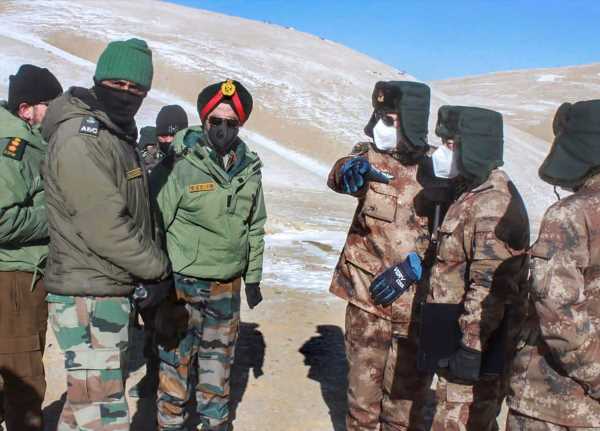Influential Indian-American Congressman Ro Khanna has said that Indians now see China as their greatest military threat and not Pakistan, and emphasised the need to have constructive re-balancing with Beijing.
Relations between China and India have virtually frozen ever since the eastern Ladakh military standoff between the two countries in May 2020.
The two countries have held 17 rounds of high-level military commanders’ talks to resolve the standoff.
India has been maintaining that its ties with China cannot be normal unless there is peace in the border areas.
“Today, we need a constructive re-balancing with China. This requires us to be clear-eyed about the threats we and our allies in Asia face, but are hopeful that our diplomacy and statesmanship can make the 21st century less bloody than the 20th century,” Khanna said in a foreign policy speech at the prestigious Stanford’s Hoover Institution on Monday.
“There are four guiding principles for a constructive re-balancing with China: First, an economic reset to reduce trade deficits and tensions; second, open lines of communication; third, effective military deterrence; and fourth, respect for our Asian partners and robust economic engagement with the world,” he said.
“China creeps towards hegemony in Asia, threatens India’s borders, and treats other countries as junior partners. The people of India now see China as their greatest military threat, not Pakistan,” he said.
Khanna, 46, represents Silicon Valley in the US House of Representatives.
“We have the technology to bring about an American production renaissance as Andy Grove, the famous Intel CEO, called for back in 2010. We have an Asian American diaspora that understands the need for open lines of communication and exchanges with Asia,” he said.
The Valley is pioneering the leading technology in AI, cyber, space, long-range missiles, and unmanned vehicles that will be essential for effective deterrence in the Taiwan Strait, he said.
It has a business community that understands that engagement — not isolation — is how they make friends around the world, especially in the Global South, and stand up for American values, he said.
Khanna pointed out that the US needs to build its alliances with India and other Asian partners, recognising that they will not be satellite states.
“Given the history of colonialism, and the cultural pride of many Asian nations, the US cannot expect to have as smooth, lockstep, and cohesive an alignment as an Asian NATO,” Khanna explained.
“What we need is multipolarity in Asia and the denial of China as a hegemony. India will be a key partner in that effort. As the new co-chair of the Congressional India Caucus, I’ve called for strengthening our economic and defence ties between the oldest and largest democracies. The new US-India initiative on Critical and Emerging Technology, will deepen our technology partnership,” Khanna elaborated.
The US, India and several other world powers have been talking about the need to ensure a free, open and thriving Indo-Pacific in the backdrop of China’s rising military manoeuvring in the resource-rich and strategically important region.
In 2017, the US, Australia, India and Japan gave shape to the long-pending proposal of setting up the Quad to develop a new strategy to keep the critical sea routes in the Indo-Pacific region free of any influence.
“India’s participation in the Quad, along with Japan and Australia, is critical for ensuring our partners work together to keep China from becoming a hegemony in Asia. In the 1950s, China and India shared a common aspiration to see Asia emerge after Western colonialism. But Nehru’s vision of collaboration with China has soured,” Khanna said.
“We’ve also seen Japan, a nation hesitant to build up its defence after World War II, take historic steps to build out its national security apparatus,” he added.
China is engaged in hotly contested territorial disputes in both the South China Sea and the East China Sea.
China claims sovereignty over all of the South China Sea.
Vietnam, Malaysia, the Philippines, Brunei and Taiwan have counterclaims.
Beijing has also built up and militarised many of the islands and reefs it controls in the region.
Both areas are stated to be rich in minerals, oil and other natural resources and are also vital to global trade.
Source: Read Full Article

